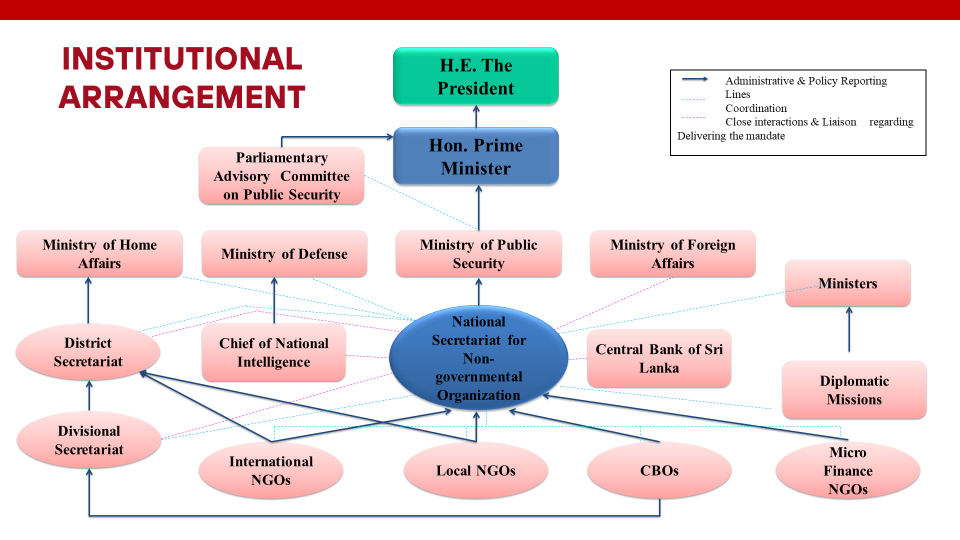Taking steps to introduce a registration system
Therefore, the government wanted to pay close attention to introduce a registration system for non-governmental organizations in the country. Accordingly, the President appointed a commission to look into the activities of those organizations and make recommendations regarding their proper functioning. As per the recommendations made by this commission, regulations were passed under the Public Security Ordinance mandating the registration of NGOs having a fund of Rs 50,000 and above. However, with the repeal of the Emergency Regulations, this system also lapsed. In 1995, the Ministry of Health, Highways, and Social Services proposed several amendments to the 1980 Act. Legislation has been drafted to establish an NGO Advisory Council and appoint an Interim Management Board to administer the affairs of NGOs. Strong objections were raised against these arrangements. However, in 1998, the draft was approved by the Parliament (Act No. 8 of 1998).
Accordingly, the National Secretariat for Non-Governmental Organizations was established in 1996 under the Ministry of Health, Highways, and Social Services. After that, it has operated under various ministries such as Defense, Foreign Affairs, etc., and currently, the National Secretariat for Non-governmental Organizations operates under the purview of the Ministry of Public Security from July 2022.
This Secretariat provides an island-wide service, and for that, District NGO Coordinating Officers have been appointed to cover each district. Part of the Registrar's powers have been delegated to District Secretaries and divisional secretaries. Accordingly, the district secretary has been appointed as the deputy registrar, and the divisional secretary as the assistant registrar.
But in 1980, the government enacted the Voluntary Social Service Organizations (Registration and Monitoring) Act, which introduced a system of registration and monitoring of the activities of NGOs. However, this Act was not strictly enforced, and the registration of NGOs was not done properly. As a result, the public and some NGOs themselves raised their voice about the misuse of flexibility and autonomy of their organizations and the misuse of funds. In fact, there have been cases of complaints against some NGOs by their employees and other agencies.

